The tooth fairy is a welcome guest for any child who has lost a tooth. Not only will the fairy leave a small gift under the child’s pillow, but they be assured of a replacement tooth in a few months. Unfortunately, the scenario is quite different for adults grappling with a loss of teeth. Luckily, there may be some hope thanks to a new study performed by scientists at Kyoto University and the University of Fukui.
A dental breakthrough
While the typical adult mouth houses 32 teeth, approximately 1% of the population exhibits variations of them, either possessing more or fewer teeth due to congenital conditions. Researchers have delved into the genetic factors behind cases of excessive teeth, seeking valuable insights into the potential regeneration of teeth in adults. This study is the first to show that monoclonal antibodies can help regrow teeth. It suggests a new way to treat a dental problem that currently requires implants and other artificial solutions.
A bit of science
The research team disclosed that an antibody targeting a specific gene, known as uterine sensitization-associated gene-1 (USAG-1), can induce tooth development in mice affected by tooth agenesis, a congenital condition. The findings were published in the journal, Science Advances.
As per Katsu Takahashi, a senior lecturer at the Kyoto University Graduate School of Medicine and one of the principal contributors to the study, the essential molecules crucial for the development of teeth have already been pinpointed. “The morphogenesis of individual teeth depends on the interactions of several molecules including BMP, or bone morphogenetic protein, and Wnt signaling,” says Takahashi.
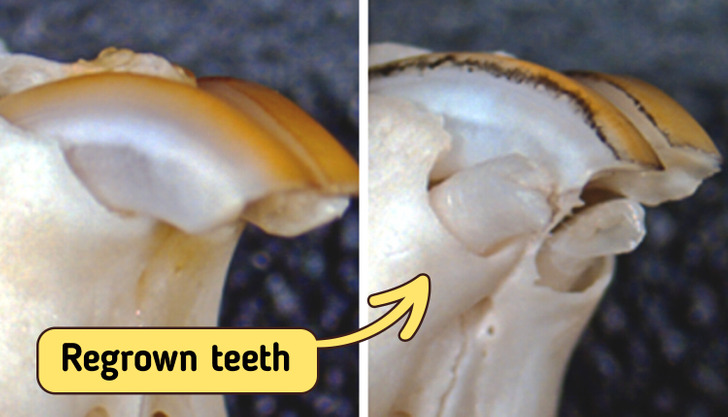
On April 13, 2021, the University of Kyoto posted its first pic of newly-grown teeth in mice.
BMP and Wnt are involved in more than just tooth development; they affect the growth of organs and tissues early in the body’s development. Because drugs affecting them directly might have broad side effects, scientists are cautious. To find a potentially safer method, researchers focused on the gene USAG-1, thinking that aiming at factors countering BMP and Wnt specifically in tooth development could be more precise.
“We knew that suppressing USAG-1 benefits tooth growth. What we did not know was whether it would be enough,” added Takahashi.
The first results
Scientists looked at how different monoclonal antibodies affect USAG-1. Monoclonal antibodies are often used to treat things like cancer and arthritis and for making vaccines. Tests with this antibody showed that BMP signaling is crucial for deciding the number of teeth in mice. Also, just one treatment was enough to grow a whole tooth. Further tests confirmed these positive results in ferrets too.
“Ferrets are diphyodont animals with similar dental patterns to humans. Our next plan is to test the antibodies on other animals, such as pigs and dogs,” explained Takahashi.
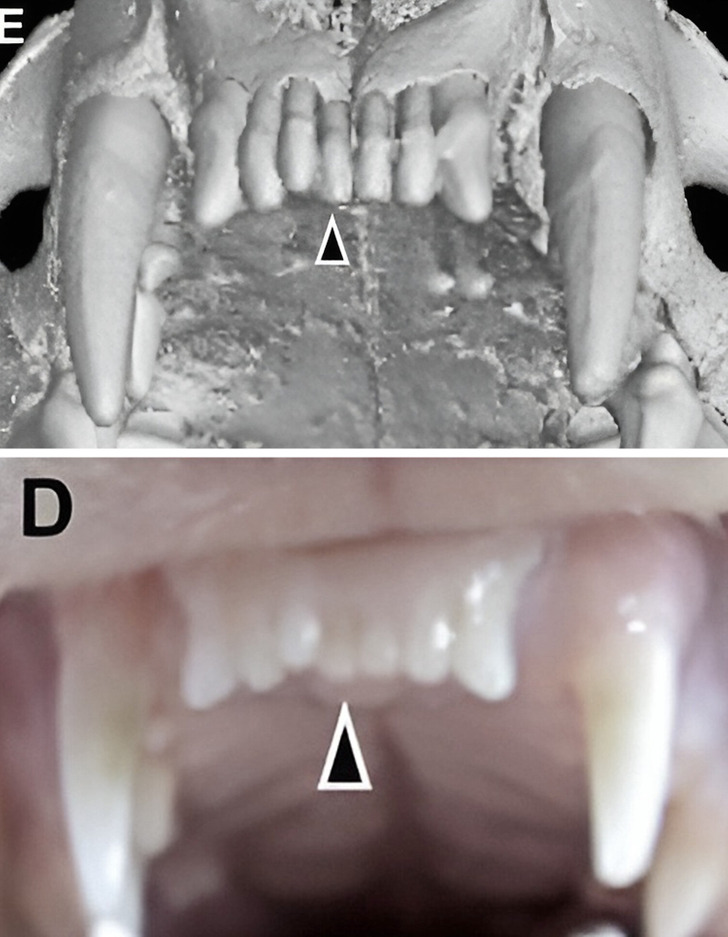
Fully regrown frontal teeth in ferrets
The next steps
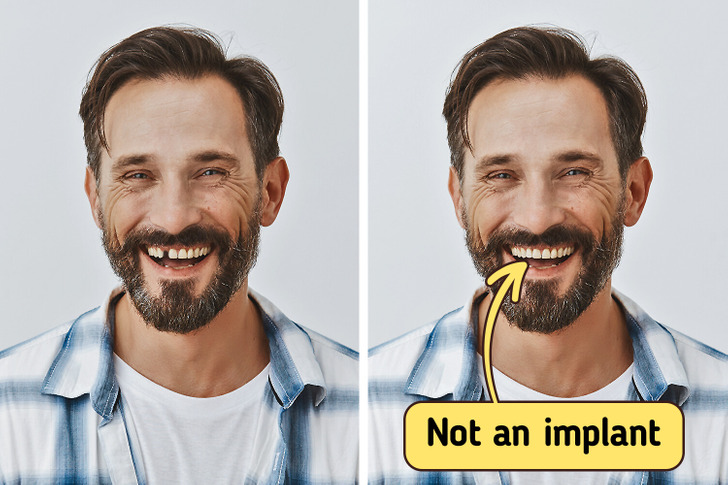
Now, scientists are going to test the drug on healthy adults. If that goes well, the team plans to try it on kids aged 2 to 6 with a rare tooth problem called anodontia, a genetic disorder defined as the absence of all teeth. These kids will get one shot of the drug to see if it makes their teeth grow. If everything works out, the medicine might be approved by 2030.
Takahashi sees the new medicine as an additional choice for individuals who are missing some or all of their teeth.
“The idea of growing new teeth is every dentist’s dream,” Takahashi told the Japanese newspaper, The Mainichi in June this year. “I’ve been working on this since I was a graduate student. I was confident I’d be able to make it happen.”
So hopefully, by the year 2030, humans will get a chance to have their third generation of teeth grown and say goodbye to implants. Until then, make sure to keep your teeth strong and healthy — this article will help you with that.
Preview photo credit KyotoU_News / Twitter
I Attended My Husband’s Office Party for the First Time, but I Never Expected to See His Other ‘Wife’ There

When Jennifer stumbled upon an email inviting her husband to a glamorous New Year’s party with a plus-one allowed, her curiosity was piqued. But what she uncovered at the event shattered her trust, setting the stage for an unexpected twist of fate.
The laptop pinged, interrupting the movie we were watching. Oliver had just gone to the bathroom, leaving his laptop open on the coffee table.

An open laptop | Source: Pexels
I glanced at the screen, the glowing subject line catching my eye.
“Dear Mr. Oliver,
We are happy to announce the New Year party is coming up! Dress code: White Party. You may bring your plus-one (your wife). Address…”

A shocked woman looking at her laptop | Source: Pexels
I blinked, rereading the email. His company never allowed plus-ones. Never. I couldn’t count the number of times I had heard him complain about it. Yet, there it was in black and white—plus-one (your wife).
When Oliver came back, I tried to play it cool, though my curiosity was bubbling. “Your office is throwing a New Year’s party?” I asked casually.

An excited woman looking at her laptop | Source: Pexels
“Oh, yeah,” he replied, picking up his laptop and closing it before I could say more. “Nothing big. Just the usual end-of-year stuff.”
“Can I come?” I asked, tilting my head and smiling.
He froze for half a second before brushing it off. “No, they don’t allow guests. It’s more of a work event.”
I frowned. “But the email said—”

A frowning woman on the couch | Source: Pexels
“They don’t, Jen. Trust me.” His tone was clipped, and he didn’t meet my eyes. “Anyway, I’ll just be working that night. No big deal.”
That was the first time I felt something strange. Oliver always worked late or traveled for business, so I had gotten used to him being away. I trusted him, because that’s what you do in a marriage. But this time, his response felt… off.
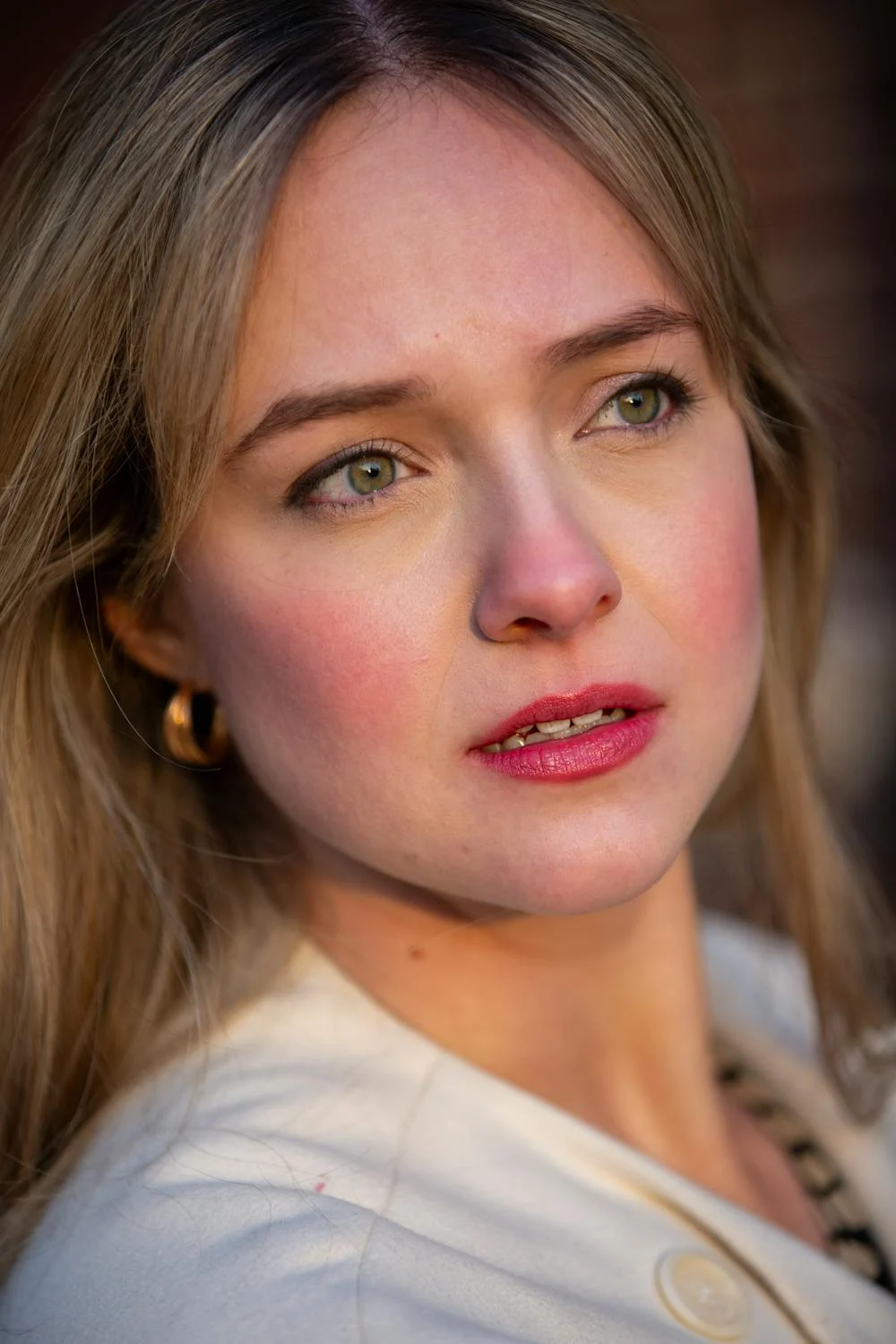
A suspicious woman | Source: Pexels
New Year’s Eve arrived, and I stood in front of the mirror, adjusting my white dress. Curiosity had gnawed at me for days. Why didn’t he want me at the party? Was he embarrassed? Hiding something?
“Happy New Year, Jen!” he called as he grabbed his coat, giving me a quick kiss on the cheek.
“Happy New Year,” I replied, watching him leave.

A man putting on his coat | Source: Midjourney
As soon as the door clicked shut, I grabbed my purse and headed out.
The hotel where the party was held glowed like a jewel in the night. The lobby was decorated with silver streamers, twinkling lights, and elegant floral arrangements. Guests in sparkling white outfits mingled, laughter and conversation filling the air. I felt both nervous and determined as I approached the reception desk.

A woman in a hotel | Source: Midjourney
“Name, please?” the manager asked with a polite smile, glancing up from his clipboard.
“Jennifer. I’m Oliver’s wife,” I said confidently.
His smile faltered for a moment, and he looked down at his list, then back up at me. Then, he laughed. “Nice try!”
“I’m Jennifer,” I repeated. “Oliver’s wife.”

A woman at a reception desk | Source: Midjourney
The manager’s expression turned awkward. “Oh… uh…” He hesitated, then cleared his throat. “I think there’s been some confusion. Oliver already checked in… with his plus-one. His real wife.”
My chest tightened. “What?”
“Yes, he arrived about 30 minutes ago. They always arrive together, I’ve seen them many times.” He winced slightly, as if bracing for my reaction.
“I’m his wife,” I said sharply, the words feeling heavy on my tongue.

A hotel manager | Source: Pexels
He opened his mouth to reply but closed it again, his face apologetic. “Let me double-check the guest list.”
Before he could move, I caught a glimpse of Oliver in the far corner of the room. He was easy to spot in his crisp white suit. My breath caught when I saw him with her—a woman with long dark hair, her arm resting on his shoulder. They were laughing, leaning in close, their body language unmistakably intimate.

A couple at a party | Source: Pexels
The world seemed to spin. The glitzy decorations blurred as my mind raced.
“Ma’am?” the manager asked gently, breaking into my thoughts.
I turned back to him, my voice suddenly calm. “No need to check. I see him.”
He hesitated, looking like he wanted to say something, but I was already walking away from the desk, away from the party, and away from Oliver.

A woman leaving a hotel | Source: Midjourney
Outside, the cold air stung my face, but it didn’t dull the fire burning inside me. I wrapped my coat tighter around me, my heels clicking on the sidewalk as I made my way to my car.
I didn’t know exactly what I was going to do, but I knew one thing: Oliver was going to regret this.

A sad woman walking on the street | Source: Midjourney
The next day, the phone rang just as I was pouring my morning coffee. I almost didn’t answer, still angry about last night, but something made me pick up.
“Is this Mr. Oliver’s wife?” a calm, professional voice asked.
“Yes,” I replied, my stomach twisting.

A serious woman walking on her phone | Source: Pexels
“This is Mercy Hospital. Your husband was in a car accident early this morning. He’s stable, but we need you to come in right away.”
My breath caught. “A car accident? Is he… is he okay?”
“He has a concussion and a broken arm. There are complications we’ll explain when you arrive.”
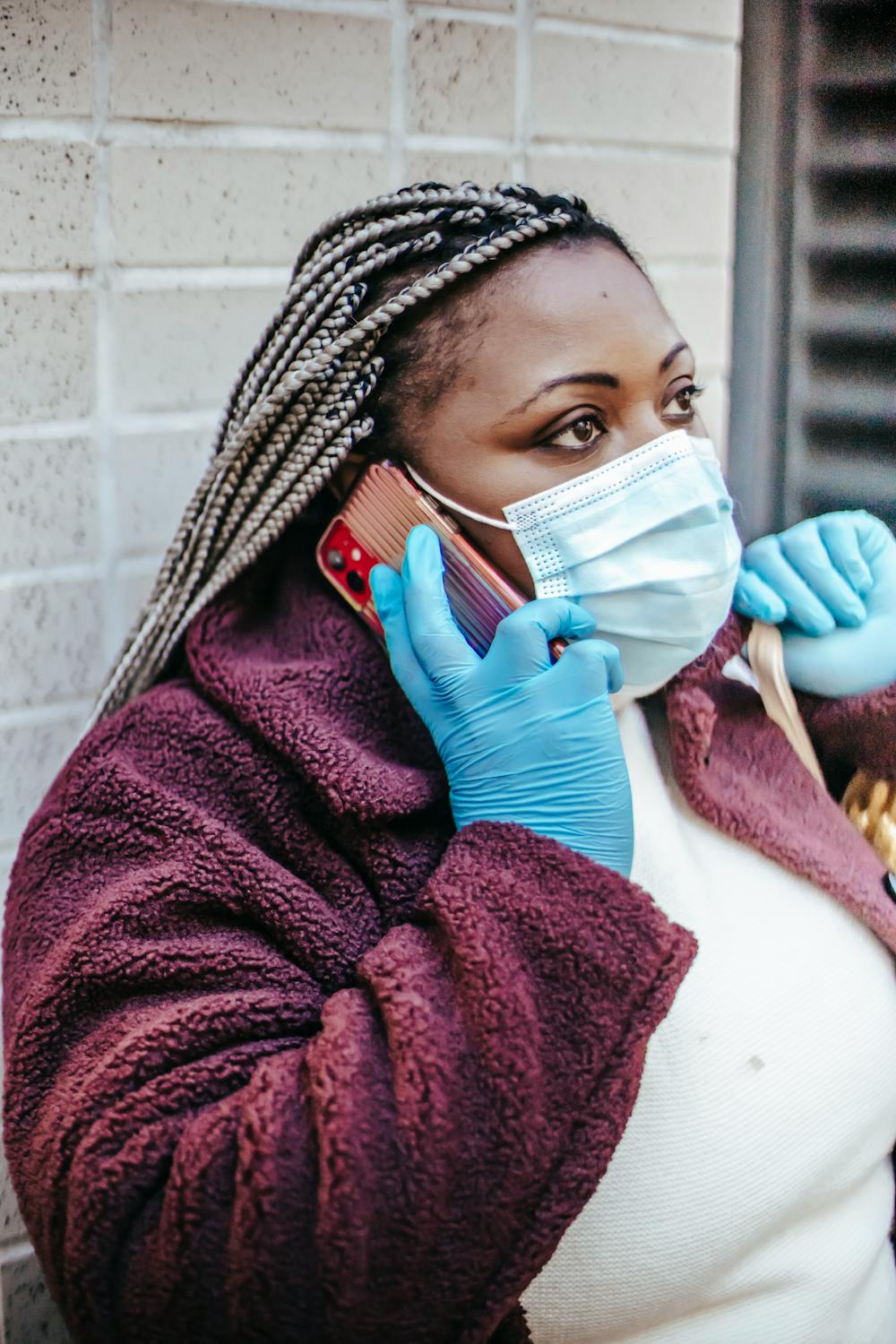
A hospital professional talking on her phone | Source: Pexels
I didn’t say another word. I grabbed my coat and rushed out the door, my anger from the night before swirling with worry.
At the hospital, the antiseptic smell hit me as I walked into the waiting area. Nurses bustled by, their faces neutral, while I stood there, my heart racing.
“Jennifer?” a doctor called, walking toward me. He was middle-aged, with a kind but serious expression.

A medical professional | Source: Pexels
“Yes. Is Oliver okay?”
“He’s stable for now, but there’s an issue we need to address,” he explained, motioning for me to sit. “His arm is fractured in several places. There’s a risk of long-term damage unless we operate soon. Unfortunately, there’s a problem with his insurance. His policy lapsed last month. As his wife, you can authorize the procedure and arrange payment.”

A woman talking to a doctor | Source: Midjourney
I blinked, trying to process his words. “His insurance… lapsed? Why didn’t he renew it?”
The doctor shook his head. “I can’t speak to that, but we do need to act quickly. Will you authorize the surgery?”
When I stepped into Oliver’s room, the sight of him startled me. His face was pale, a bandage wrapped around his head. His arm was in a sling, and he looked more fragile than I’d ever seen him.
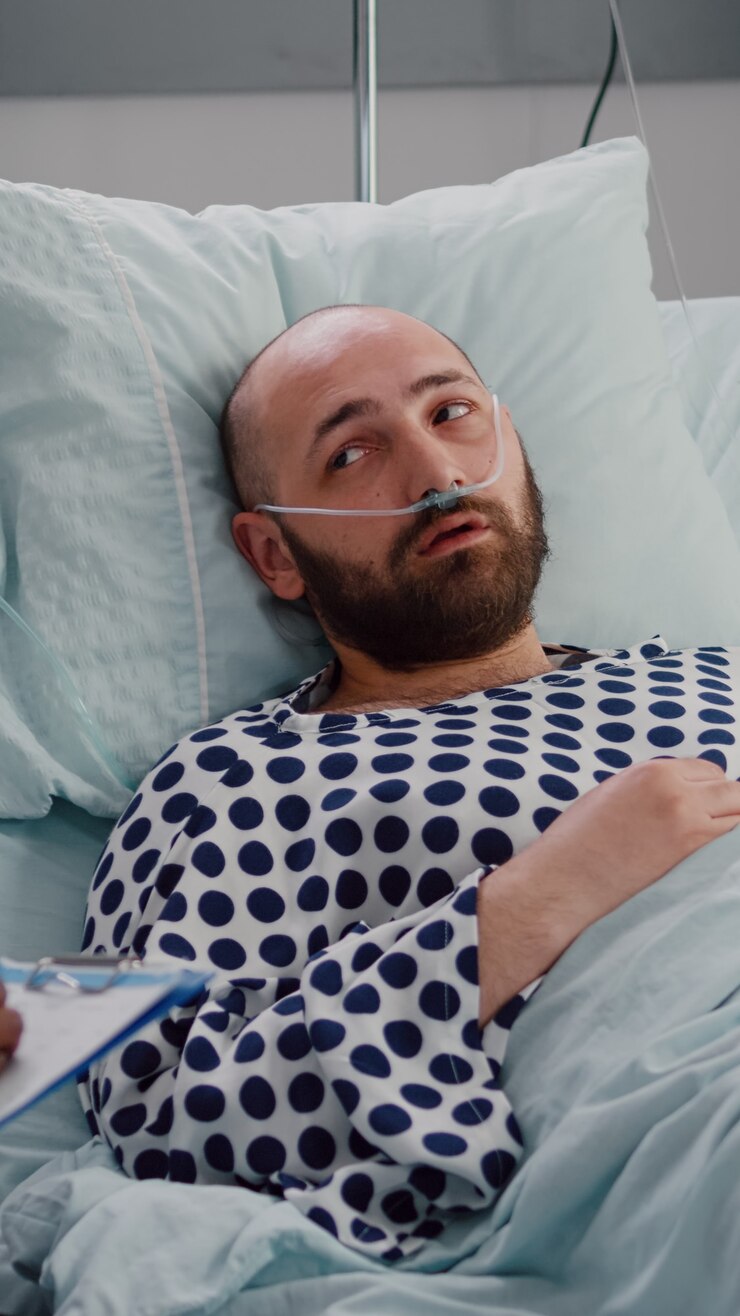
A man in a hospital bed | Source: Freepik
“Jen,” he croaked when he saw me, his voice weak.
“Oliver,” I said stiffly, standing by the door.
His eyes searched mine, pleading. “I know you’re upset, but please… just listen. It’s not what you think.”
“Oh, it’s exactly what I think,” I said, my voice icy. “You lied to me. You’ve been lying to me. And last night, I saw you with her. You brought her to that party, didn’t you?”

An angry woman in a hospital | Source: Midjourney
His face went pale. “I can explain—”
“I don’t want your explanations,” I snapped, cutting him off. “The doctor says you need surgery, but your insurance lapsed. That sounds like a problem for your real wife to handle.”
“Jen, don’t do this,” he whispered, his voice cracking. “I made a mistake. Please, just sign the papers.”
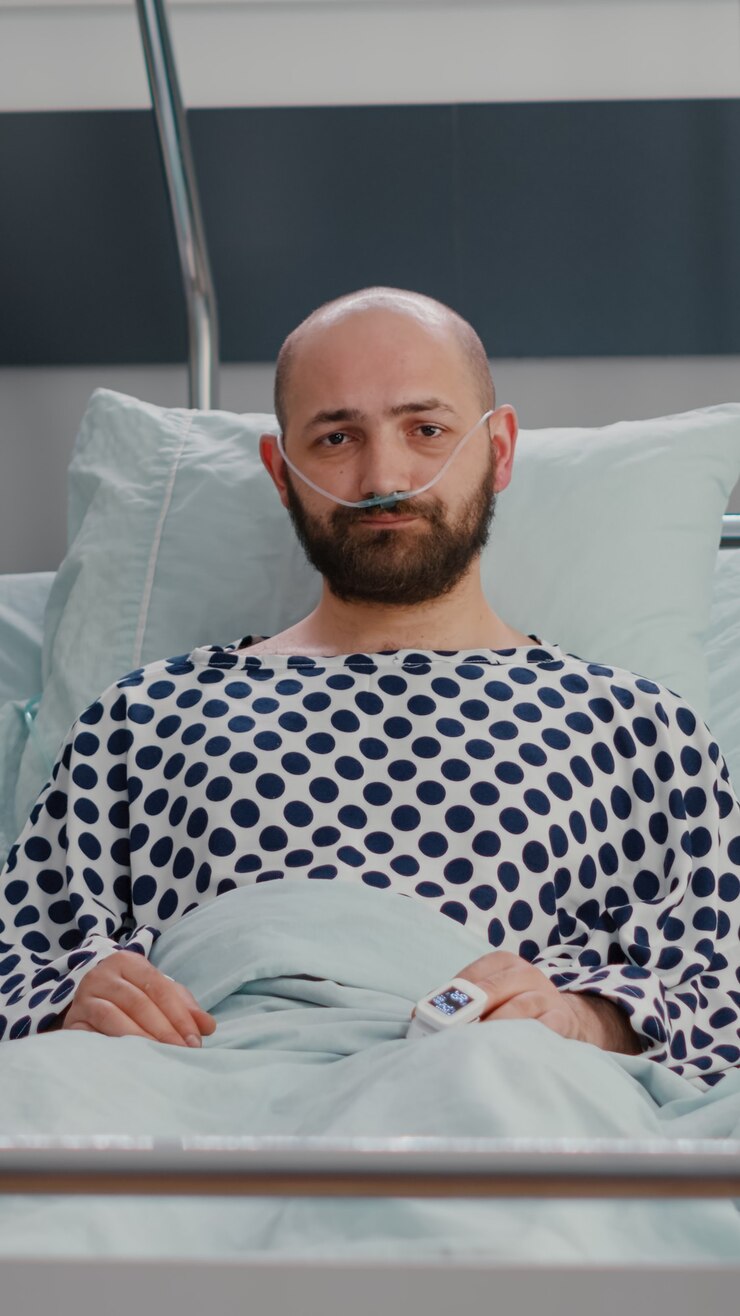
A sad man in a hospital bed | Source: Freepik
I stared at him for a long moment, my heart pounding. Part of me wanted to scream, to cry, to give in and help him. But then I thought of all the times I had trusted him, only to find out it was all a lie.
“No, Oliver,” I said, my voice firm. “You’ve made your choices. Now you can live with them.”
I turned and walked out of the room without looking back.

A woman leaving a hospital room | Source: Midjourney
In the hallway, my steps felt lighter, as if a weight had lifted off my chest. For the first time in years, I realized I wasn’t responsible for cleaning up his messes.
It was over. Whatever happened next was up to him.
A few days later, I received a call from the hospital. It wasn’t the doctor. It was Oliver.
“Jen, please,” he begged. His voice was hoarse, almost unrecognizable. “She didn’t come. I’m alone here. I need you.”

A man talking on his phone in a hospital bed | Source: Midjourney
I said nothing, gripping the phone tightly as his words sank in. The “real wife” wasn’t so real after all. She hadn’t shown up, not for the surgery, not for anything. She’d disappeared the moment she realized he wasn’t the man he pretended to be.
“Jen?” he whispered.
“You made your choice, Oliver,” I said, my tone steady. “Now you can deal with the consequences.”

A serious woman talking on her phone | Source: Pexels
I hung up and blocked his number.
In the weeks that followed, I heard through mutual friends that Oliver’s career was falling apart. Word of his affair spread at work. The woman he’d paraded at the party was no longer seen with him, and his charm didn’t seem to fool anyone anymore.
But I didn’t feel sorry for him. I felt free.

A woman smiling with a balloon | Source: Pexels
For the first time in years, I wasn’t carrying the weight of his lies. Instead of worrying about his needs, I focused on myself.
I signed up for a pottery class—a silly dream I’d put off for years. I spent weekends hiking trails I’d always wanted to explore. I started painting again, filling my apartment with canvases splashed with color.
For years, I, Jennifer, had been the dutiful wife. But now, Jen was stepping into her own life.

A happy woman painting | Source: Pexels



Leave a Reply